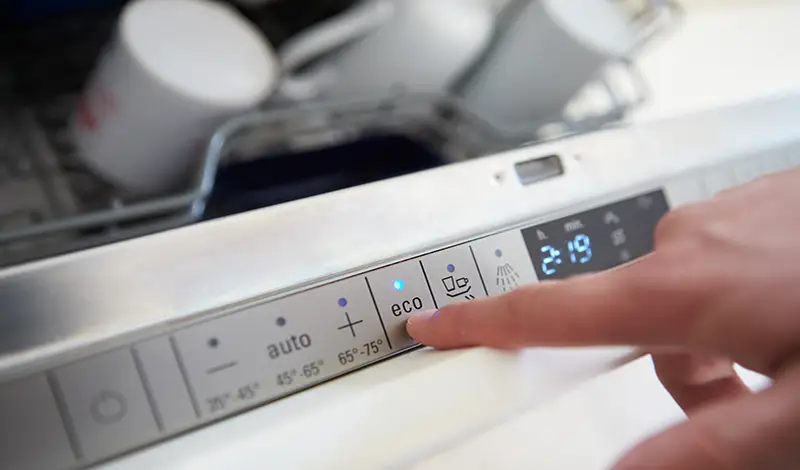10 Effective Ways to Make Your Home More Energy Efficient
Published on March 14, 2024 | 6 Minute read

Melanie
Ortiz Reyes
Content Specialist
In today's world, where environmental concerns are increasingly at the forefront of public consciousness, making your home more energy-efficient is not only beneficial for the planet but also for your wallet. By reducing energy consumption, you can lower utility bills and create a more comfortable living space. Fortunately, there are numerous ways to achieve energy efficiency in your home, ranging from simple adjustments to more significant investments. Here are ten effective strategies to make your home more energy-efficient:

1. Upgrade to Energy-Efficient Appliances - Older appliances tend to consume more energy than their modern counterparts. Consider replacing outdated appliances such as refrigerators, washing machines, and dishwashers with energy-efficient models. Look for appliances with the ENERGY STAR label as this signifies that they meet strict energy efficiency guidelines set by the Environmental Protection Agency.
2. Seal Air Leaks - Air leaks around doors, windows, and other openings can significantly impact your home's energy efficiency by allowing heated or cooled air to escape. Seal gaps and cracks with weatherstripping or caulking to prevent air leakage. Additionally, consider installing draft stoppers at the bottom of doors to minimize drafts.
3. Improve Insulation - Proper insulation is essential for maintaining a comfortable indoor temperature and reducing energy waste. Insulate your attic, walls, and floors to prevent heat loss during the winter and keep your home cooler in the summer. Consider using environmentally friendly insulation materials such as recycled denim or cellulose.
4. Install Programmable Thermostats - Programmable thermostats allow you to set heating and cooling schedules based on your daily routine, ensuring that energy is not wasted when you're away from home or asleep. By automatically adjusting the temperature, these thermostats can help you save energy and reduce utility costs.
5. Switch to LED Lighting - Traditional incandescent light bulbs consume more energy and have a shorter lifespan compared to LED bulbs. Replace incandescent bulbs with energy-efficient LED alternatives to reduce electricity usage and lower your lighting expenses. LED bulbs also produce less heat, reducing the strain on your cooling system during the summer months.
6. Use Energy-Efficient Windows - Energy-efficient windows with multiple panes, low-emissivity coatings, and gas fills can significantly improve insulation and reduce heat transfer. These windows help maintain consistent indoor temperatures while minimizing the need for heating or cooling. Consider upgrading to energy-efficient windows to enhance your home's energy efficiency.
7. Optimize Heating and Cooling Systems - Regular maintenance of your heating, ventilation, and air conditioning (HVAC) systems is crucial for optimal energy efficiency. Clean or replace air filters regularly, seal ductwork to prevent leaks, and schedule professional HVAC inspections to ensure that your systems operate efficiently. You can also consider upgrading to high-efficiency HVAC equipment for long-term energy savings.
8. Harness Solar Energy - Solar panels offer a sustainable way to generate electricity and reduce reliance on traditional energy sources. Install solar panels on your roof or in your yard to harness solar energy and power your home with clean, renewable electricity. Many governments offer incentives and rebates for solar panel installation, making it a cost-effective investment in the long run.
9. Implement Smart Home Technology - Smart home devices, such as smart thermostats, lighting controls, and power strips, enable you to monitor and control energy usage remotely. By automating energy-saving behaviors and adjusting settings based on real-time data, smart home technology can help you optimize energy efficiency and reduce waste.
10. Practice Energy Conservation Habits - Finally, adopting simple energy conservation habits can make a significant difference in your home's energy efficiency. Turn off lights and electronics when not in use, unplug chargers and appliances that are not in use, and use energy-efficient cooking methods such as microwaving or using pressure cookers instead of ovens. Additionally, minimize water usage to reduce energy consumption associated with heating water for showers, laundry, and dishes.

Making your home more energy-efficient is not only beneficial for the environment but also for your finances. By implementing the ten strategies outlined above, you can reduce energy consumption, lower utility bills, and create a more sustainable living environment for yourself and future generations. Whether through simple changes in behavior or more significant investments in technology and infrastructure, every step toward energy efficiency contributes to a brighter and greener future.
Achieving energy efficiency in the home requires a comprehensive approach that addresses various aspects of energy consumption and conservation. While each of the ten strategies outlined above can contribute to improved energy efficiency on its own, combining multiple approaches can yield even greater results. For example, upgrading to energy-efficient appliances and implementing smart home technology can work synergistically to optimize energy usage and reduce waste. Similarly, improving insulation and sealing air leaks can complement each other to create a more tightly sealed and well-insulated home environment.
Moreover, it's essential to consider the long-term benefits of investing in energy efficiency. While some improvements may require an initial investment, such as upgrading appliances or installing solar panels, the long-term savings on utility bills can often offset these costs over time. Additionally, many governments offer incentives, rebates, and tax credits for energy-efficient upgrades, further reducing the financial burden of implementation.
Beyond the financial benefits, enhancing energy efficiency in the home contributes to broader environmental and societal goals. By reducing energy consumption, homeowners can lower their carbon footprint and mitigate the environmental impacts associated with energy production and consumption. Moreover, energy-efficient homes are more resilient to fluctuations in energy prices and supply, providing greater stability and security for homeowners.
Making your home more energy-efficient is a win-win proposition that benefits both the environment and your bottom line. By adopting the ten strategies outlined in this article and taking a comprehensive approach to energy efficiency, you can create a more sustainable, comfortable, and cost-effective living environment for yourself and your family. From simple behavioral changes to more significant investments in technology and infrastructure, every step toward energy efficiency helps build a brighter and greener future for all.